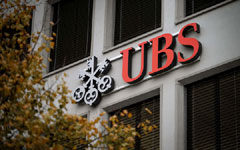"I do not agree with the CSRC's logic," said Rui.
The regulators' argument was that Aosaikang was looking for an aggressive cash-out and the price-earnings ratio was too high. But Aosaikang had done nothing illegal or against the rules. If the market accepts it, it should be reasonable. If it falls on its debut, it would simply show that the market did not recognize the price and it would be deserted by investors, Rui added. He also said that it did not make sense for the CSRC to demand that issuers lock in P/E ratios of new shares within the range of industry peers. Price controls curb collusion to create artificially high prices, he said, and to some extent they prevent retail investors from becoming "trapped" by a high IPO price, but they are totally "unnecessary", Rui added.
 |
|
 |
Analysts and investors have criticized the CSRC for intervening too much in the stock market and said that top-down verification cannot effectively prevent fraud or insider trading. What's more, they said, requiring official verification creates room for corruption. CSRC Chairman Xiao Gang responded that the authorities are pushing for registration-based IPO reform step-by-step, after which the authorities will focus on compliance reviews of the new listing candidates.
"The CSRC can do much more than just talk about reform," said independent financial columnist Pi Haizhou.
Pi said that, based on current regulations, 60 percent of new shares issued are allocated to institutional investors, which is unfair to retail investors. He also suggested prohibiting the transfer of pre-listing shares during the IPO process to prevent aggressive cash-outs.
"China's stock market has been developing under governmental intervention since it was established in the 1990s," said Yin Zhongli, deputy director of the Institute of Finance and Banking at the Chinese Academy of Social Sciences.
But such intervention has greatly distorted the pricing of public shares, leading to distortion in new share prices. Even if the authority tried to curb the IPO price, it would quickly hit the upward limit after going to the secondary market, causing a run on new shares, he added.
Rui said a watchdog to strengthen enforcement is badly needed.
"Criminal penalties should be established to deter price manipulation and insider trading. More important, the authority should go after lawbreakers, no matter who they are, no matter who their parents are," Rui added, noting that many brokerage executives are the "second generation" of high-ranking officials.
